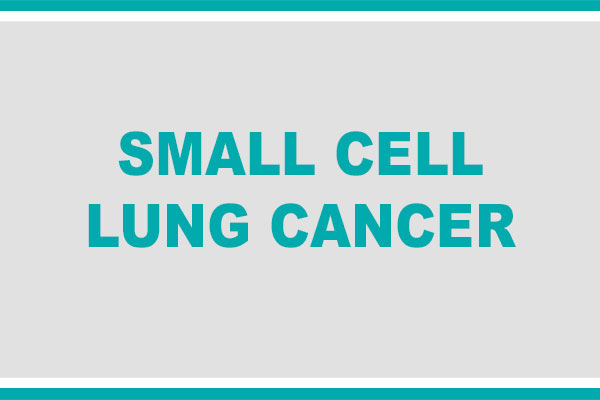New Guidelines for Small Cell Lung Cancer Survivors
New Guidelines from The National Comprehensive Cancer Network for Improving Knowledge and Quality of Life
New patient and caregiver resource from the National Comprehensive Cancer Network provides free expert consensus information on improving outcomes for people with an aggressive type of lung cancer.
The National Comprehensive Cancer Network® (NCCN®) has a publication of new NCCN Guidelines for Patients®: Small Cell Lung Cancer (SCLC), which is a neuroendocrine tumor type of lung cancer that is linked to smoking and tends to be aggressive. However, it is important to understand management options and ways to mitigate symptoms of the cancer and/or therapy. This guide is intended to empower survivors and caregivers with the same expert treatment information as their doctors. It is free to view or download at NCCN.org/patientguidelines and is funded by NCCN Foundation®.
“When you first learn of your or your loved one’s lung cancer diagnosis, it can be a shock,” said Deb Violette, President, Free ME From Lung Cancer. “It’s hard to know what information is important or even what questions to ask. These patient guidelines from NCCN give us the scientifically accurate and valid information we need before we try to navigate what’s out there on the internet or hear things from friends. People can look through this book on their own time and learn more about what to expect from their treatment course.”
The NCCN Guidelines for Patients: SCLC are based on the latest evidence and expert-consensus from the gold standard NCCN Clinical Practice Guidelines in Oncology (NCCN Guidelines®) intended for health care professionals. The NCCN Guidelines® for Small Cell Lung Cancer are developed by a multidisciplinary panel of experts from across the leading cancer centers that comprise NCCN Member Institutions. These expert recommendations are presented in non-medical terms for the patient version, which also include a glossary, illustrations, suggested questions to ask doctors, and space for notes.
“People with SCLC often experience rapid deterioration but also equally rapid response to treatment,” explained Apar Kishor P. Ganti, MD, Fred & Pamela Buffett Cancer Center, Chair of the NCCN Guidelines Panel for Small Cell Lung Cancer. “I remember my very first patient entering the hospital in a wheelchair. After his first cycle of chemotherapy he was able to walk out and have a much better quality of life, and even celebrate an important milestone. This disease is very aggressive and can be a bit of a rollercoaster. I’m grateful to now have this new resource from NCCN to help patients and their loved ones gain a clearer understanding of what to expect. The introduction of immunotherapy as part of first-line treatment for patients with widespread disease has been a big step forward. More trials are underway and we’re hoping to know more about the role of immunotherapy for localized SCLC in the next few years.”
Source: The National Comprehensive Cancer Network, September 2021


